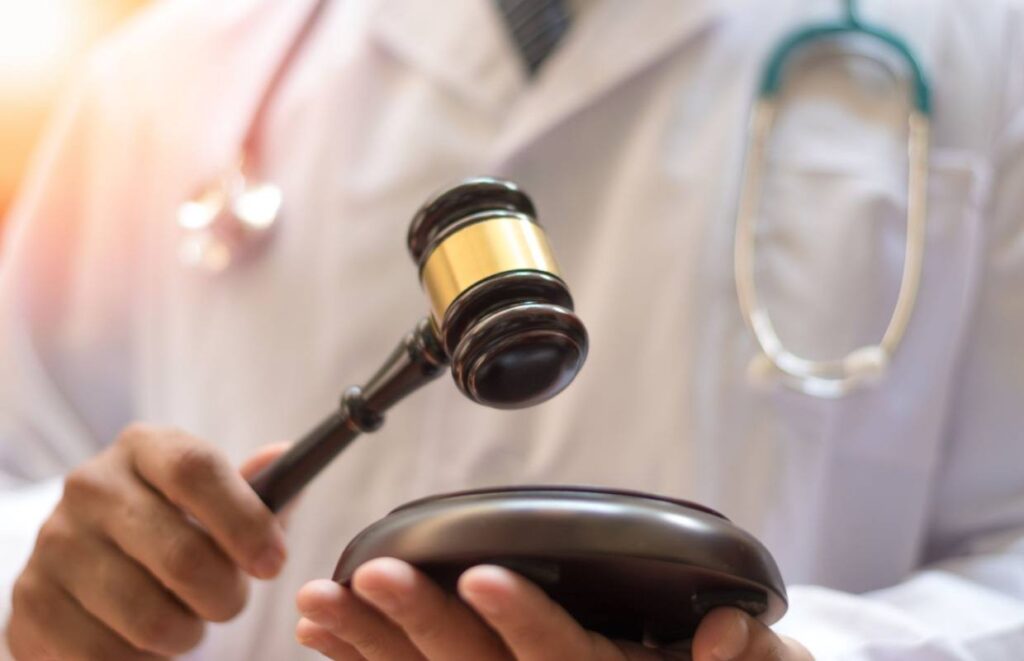
Expert witnesses are often the unsung heroes of the legal system. Their specialized knowledge can help courts resolve complex disputes and ensure justice is based on factual analysis. However, several misconceptions about expert witnesses cloud their role, leading to misunderstandings about their qualifications, responsibilities and impact on legal proceedings.
This article will explore what is true about expert witnesses, debunking common myths that may undermine their invaluable contribution to litigation. We will examine how courts determine their credibility, the ethical obligations they must uphold and how their testimony influences legal decisions.
Understanding what an expert witness does can provide valuable insight into the justice system and the importance of evidence-based conclusions in resolving disputes.
Myth #1: Expert Witnesses Are Just Highly Paid Hired Guns
One of the most pervasive myths is that expert witnesses are paid advocates who manipulate evidence to favor the side that hires them.
So, what is true about expert witnesses? They are impartial professionals whose duty is to provide objective, evidence-based opinions. Their credibility depends on their ability to maintain integrity and avoid bias. A reputable expert witness in court adheres to ethical guidelines and professional standards, ensuring that their testimony is grounded in factual, scientific or technical expertise rather than personal interest.
Myth #2: Anyone Can Be an Expert Witness
Many assume that anyone with experience in a particular field can serve as an expert witness. While experience is essential, courts require expert witnesses to possess specialized training and credentials that qualify them to testify.
What is the role of an expert witness in a trial? Their job is to clarify technical matters so that judges and juries can make informed decisions. The process of becoming an expert witness involves thorough vetting, including scrutiny of academic qualifications, professional experience and past case involvement.
Myth #3: Expert Testimony Is Always Accepted Without Question
A common misconception is that courts always accept expert testimony without scrutiny. In reality, expert testimony is subject to rigorous examination. Lawyers on both sides can challenge an expert’s qualifications, methodologies and conclusions through cross-examination.
Additionally, courts use standards such as the Daubert or Frye test to determine whether an expert’s methods are scientifically valid and applicable to the case.
Myth #4: Expert Witnesses Only Work for One Side
Some believe that expert witnesses exclusively support either the prosecution or the defense. However, many experts provide their services to both plaintiffs and defendants, depending on the case. Their role is to present unbiased, fact-based opinions, regardless of which side retains them. Courts expect experts to uphold professional integrity rather than advocate for a particular party.
Myth #5: Expert Witnesses Must Have Prior Courtroom Experience
While courtroom experience can be beneficial, it is not a strict requirement to become an expert witness. Many highly qualified professionals serve as expert witnesses without extensive prior litigation experience.
So, what is the role of an expert witness in a trial? Their primary responsibility is to provide objective, specialized knowledge that helps the court understand complex issues. What matters most is their ability to communicate complex information effectively and withstand cross-examination. Lawyers often prepare expert witnesses thoroughly to ensure they can present their findings confidently and clearly.
Myth #6: Expert Witnesses Only Testify in High-Profile Cases
Many people associate expert witnesses with headline-grabbing trials, but in reality, they are involved in a wide range of legal matters. Experts are called upon in medical malpractice cases, personal injury claims, contract disputes, intellectual property cases and more. The role of an expert witness extends beyond the courtroom, as they also assist attorneys in case preparation, deposition reviews and settlement negotiations.
Myth #7: Expert Witnesses Work Full-Time in Litigation
Another common misconception is that expert witnesses dedicate their entire careers to litigation. While some experts specialize in forensic consulting, many are active professionals in their respective fields.
Physicians, engineers, accountants and other professionals often serve as expert witnesses while maintaining their primary careers. For medical professionals, expert witness work can be a lucrative addition to their practice, providing financial benefits and professional prestige.
Myth #8: Expert Witnesses Are Always Called to Testify
Not all expert witnesses testify in court. In many cases, their role is to provide expert witness information to attorneys, helping them understand the technical aspects of the case. Many legal disputes are settled before trial, and expert reports or depositions often play a crucial role in facilitating settlements. The impact of an expert witness can extend beyond testimony to case strategy and negotiations.
Myth #9: Becoming an Expert Witness Is Complicated and Requires Legal Training
While legal knowledge is helpful, expert witnesses do not need formal legal training. Their expertise in their respective fields qualifies them. For medical professionals, becoming an expert witness typically involves building a strong professional reputation, obtaining relevant certifications and networking with attorneys who handle cases related to their specialty. Structured training programs can streamline this process, providing the necessary guidance to enter the field effectively.
Myth #10: The Demand for Expert Witnesses Is Low
Contrary to popular belief, expert witnesses are in high demand across various industries. Legal cases often hinge on technical details that require expert interpretation. In medical litigation, for example, OBGYN specialists are frequently needed to assess standards of care, causation, and damages. As the legal system continues to rely on specialized knowledge, the need for qualified expert witnesses will only grow.
Unlocking the Potential: A Lucrative Opportunity for Medical Professionals
For medical professionals, becoming an expert witness offers a rewarding and financially lucrative opportunity. It allows physicians to apply their expertise in a new context, contribute to the justice system and generate additional income. However, success in this field requires proper training.
The OBGYN Expert Master Class offered by Moore Experts is designed to help medical professionals navigate the path to becoming expert witnesses. This program includes modules that provide comprehensive training on expert witness responsibilities, legal procedures and compelling testimony techniques. Whether you are new to the field or looking to refine your skills, this course equips you with the tools needed to succeed in expert witness work.
If you are a medical professional looking to expand your career opportunities and leverage your expertise in a legal setting, explore the OBGYN Expert Master Class today. What is true about expert witnesses is that they play a crucial role in legal cases, providing specialized knowledge that can influence outcomes.
Contact us or read our FAQs page to learn more.

